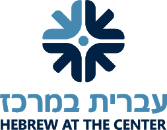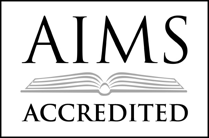Study of Ancient History Reveals Universal Realities: Sixth Grade Students Invest their Own Learning with Meaning
December 17, 2015 by
At our school, we have been exploring a seemingly obvious notion that actually has profound implications. When I first began to explore the concept that “Children are competent/capable,” I thought, “Of course, what’s so new about that insight? I have always believed children are capable, and I support them to see themselves that way….” But when I used this idea as a prism through which to assess and reflect upon my teaching, my interactions, and my messaging, I came to see it as a revolutionary and transformative concept. When we embrace the competence of children, we shift our focus from seeing teachers as being the primary founts of knowledge, understanding, and solutions to seeing children as invested and capable stakeholders who can themselves discover information, present new ideas, guide instruction, and solve problems on interpersonal and whole-school levels.
Of course, we all may ascribe to this belief in children’s competence, but are we actually living this belief? Do we belie or undermine this conviction by the actions and habits we fall into? When we rush to come up with a plan that we think is the right one for our children or to “show” a child exactly how to work through a challenge, are we giving them the message that they can help make their own way out of difficulties or are we inadvertently communicating to them that they must rely on others, the adults in their world, for best solutions? By resisting the well-intentioned impulse to provide answers, we are, in fact, providing children the growth experience of negotiating with challenge. That is not to say that we should not be there to guide and support, but we can better help children by letting them take more of the initiative in directing their next course of action and figuring out a plan. Children will grow as students and human beings through opportunities to design and implement what they learn in purposeful and meaningful ways and to own the process of confronting challenges and exploring possibilities.
This sense of the driving force of meaningful purpose for our children – and ourselves – is intrinsic to who we are as a school. Recently, my Sixth Grade students and I have had the opportunity to live this philosophy as we have co-created a learning community that reveals the depth of meaning and richness of scholarship that children can achieve when they are involved in work that has an authentic objective and that can have an impact well beyond our classroom walls. We began the school year exploring ways we could connect our study of ancient civilizations with our contemporary concerns and contexts. First, the Sixth Graders generated universal essential questions, such as “What is the purpose and impact of religion? Are the Arts a need or a luxury? What makes an effective leader? Does technology accelerate society’s progress or hasten its demise?” The ten- and eleven-year-old historians and social commentators in my classroom examine different ancient civilizations, as one student explained, “To begin to answer these questions that don’t have any final answer.” Over the course of their investigations, students develop their research skills as they integrate information to address these questions. They have drafted well-substantiated analyses of these questions, and they helped each other refine their writing through specific and thoughtful peer editing. Their writing will contribute to a textbook that we are creating, a piece of collaborative scholarship that will reach a broad audience as we share it with all of the Sixth Graders and as we donate a copy to our school library. Further, recognizing the possibilities that emerge as we study a subject through different modalities and with various materials, the students have been using the Design Lab to make artifacts to represent their learning and to better understand their subjects. And as they complete their analyses of the past, they examine its connections to the present as they teach what they have learned to their classmates, inspiring discussion and debate.
A particular moment that stands out for me occurred during a class discussion about the impact of religion. As they explored the ways religion’s purpose and practice can be defined in varying ways by the people who espouse those beliefs, some students came to the profound conclusion that “This class is not about ancient civilizations. It is about universal realities.” And that’s exactly what we have been exploring. So we renamed our class to more accurately represent what we are actually studying. Our children are grappling with questions and issues that have endured as long as humanity. They have the agency to delve deeply and to contribute their vision and understanding to very real, very current discourses that truly matter to them. They are not just developing the skills and mindsets to be engaged citizens one day when they grow up; through their writings, their words, and their insights, they can further those discussions and advance deeper understanding now.
Through meaningful and consistent study of effective pedagogy and reflective practice, the teachers at JPDS-NC are propelled by this faith in children and respect for what they can accomplish in the here and now. Inspired and impelled by a belief that children are capable, our teachers and students work together to create circumstances, opportunities, and experiences in which learning is purposeful, authentic, meaningful, and enduring so that students, while they are in our school and beyond their time here, can be leaders of their own learning, strategic problem-solvers, invested stakeholders in our school, and effective contributors to their communities. We believe that when children drive their learning, when they work together as full citizens in their schools and in their broader communities, they “own their learning” and invest in their worlds, growing as individuals who will continue to be competent collaborators who see learning as empowering, responsibilities as inspiring, and perceived problems as calls for action.






